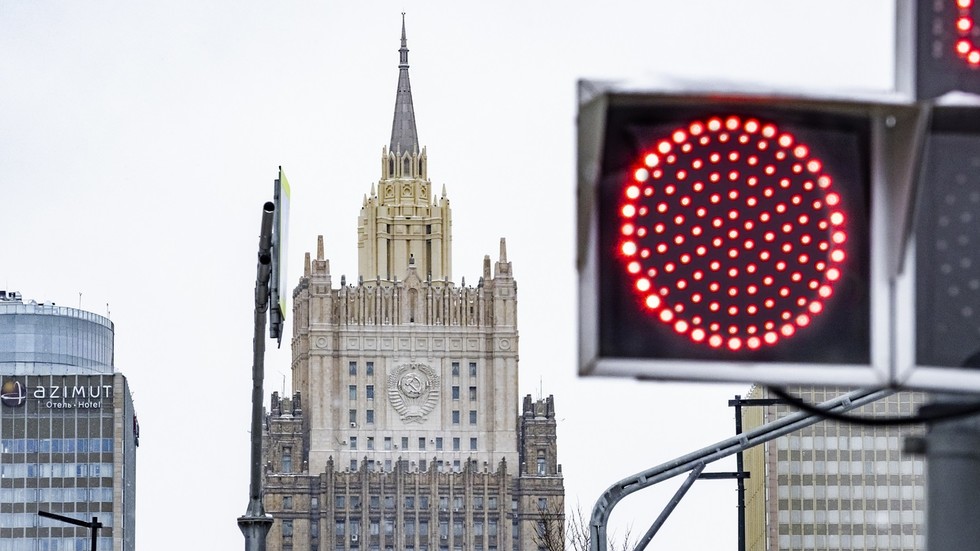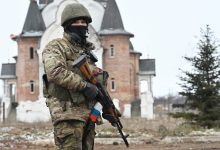
A group of protesters burned Russia’s national flag during a rally on Finland’s Independence Day
FILE PHOTO: The Russian Foreign Ministry’s building is seen in Moscow, Russia. © Global Look Press / Konstantin Kokoshkin
The Russian Foreign Ministry lodged an official protest with Finnish authorities on Saturday over what it called an “unprecedented, unacceptable act.” Moscow was referring to a group of demonstrators who burned a Russian national flag during a mass rally on Finland’s Independence Day earlier this week.
Moscow demanded that Helsinki “bring those who committed this crime to justice, and take measures to prevent such extremist behavior in the future,” the ministry’s statement read, calling the burning of the flag a “desecration of the state symbol of our nation.”
The Finnish authorities have yet to comment on the incident.
Earlier, videos had surfaced on social media showing a group of people apparently taking part in the Independence Day celebrations, holding a Russian national flag while others set it alight. Several witnesses recorded the incident on their smartphones. In the background people could be heard chanting insults against Russians.
Finnish people burning the Russian flag as part of their Independence Day celebration yesterday. pic.twitter.com/MoXx4uO7ru
— Visegrád 24 (@visegrad24) December 7, 2022
Finland celebrates its Independence Day on December 6 to mark the date when the nation formally declared its independence from the Russian Empire in 1917, following the Bolshevik Revolution.
The Nordic nation, which shares a 1,340km (832-mile) land border with Russia, has maintained military neutrality for decades. However, it applied to join NATO together with its neighbor, Sweden, in May, voicing concerns over security amid Moscow’s military operation in Ukraine.
READ MORE:
Finnish parliament to vote on NATO membership
On December 5, Finland’s government submitted a bill on NATO membership for parliamentary approval.
Moscow has said the inclusion of Finland and Sweden in NATO would not make the European continent more stable and secure, and has pledged to adjust its military posture in the northern region if the bloc adds two new members. Last week, Russian Foreign Minister Sergey Lavrov warned that the West was “digging dividing lines” in Europe instead of working towards collective security.




